If education were easy, there would be no need for a dedicated teacher.
Up to now, after 45 years in the profession, Ms. Chau Thi Minh Sam, Principal of Vietnam-America Elementary School (VASS), Phan Xich Long campus, Gia Dinh Ward, Ho Chi Minh City, has many unforgettable memories in her career.
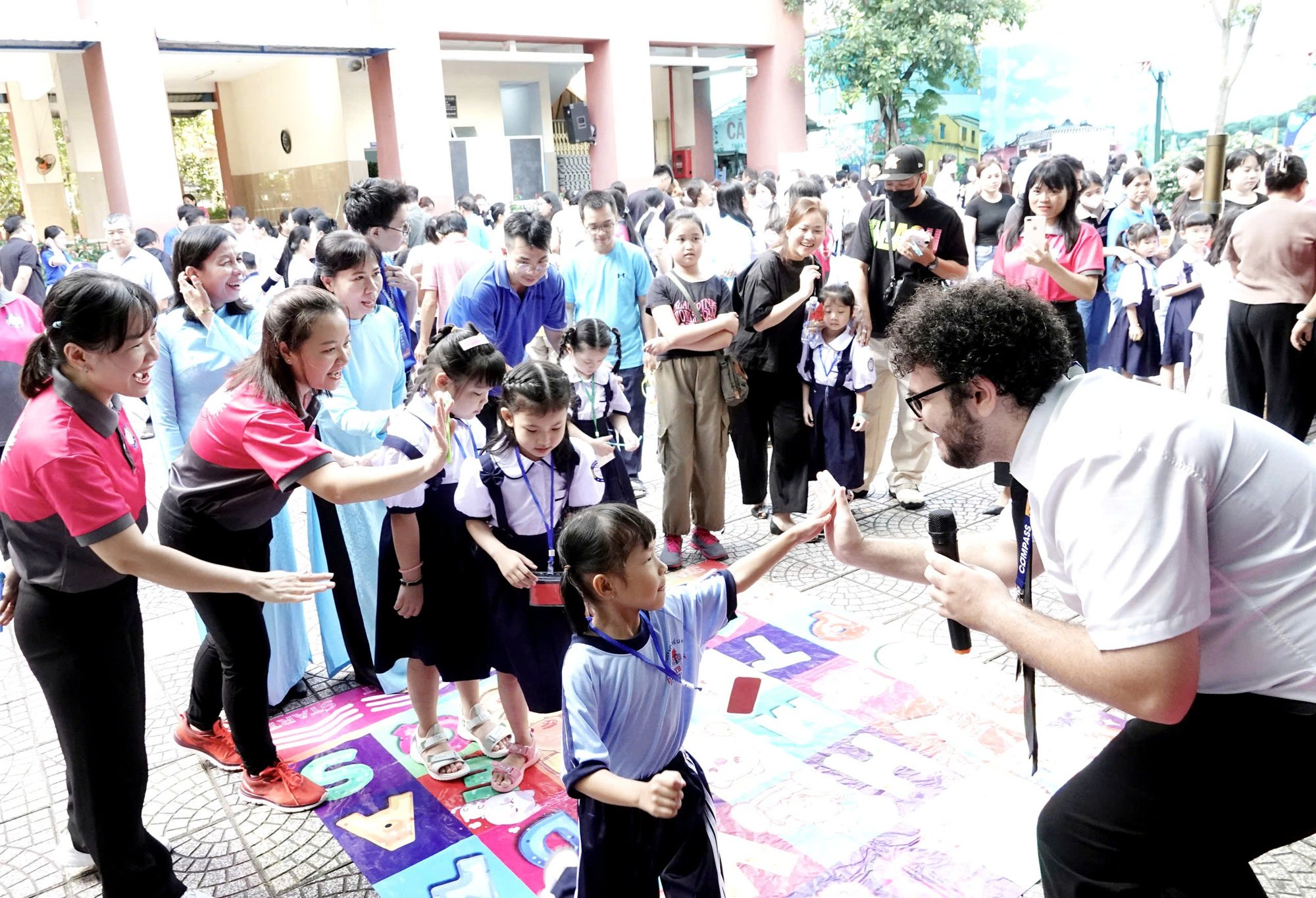
Educating a child requires the cooperation of the community, including parents, family, school and society.
PHOTO: DAO NGOC THACH
There are many sad and happy stories about reforming stubborn and rebellious students. Many children make their parents cry and cry, "Ms. Sam, I don't know how to teach my children now"... Ms. Sam confided that if education were only easy, where every student was obedient, good, and listened to teachers from the beginning, and was gentle with friends, then there would be no need for dedicated teachers. As people say, "if it's too hard, it's easy to break", "bamboo soaked in water is easy to bend", teachers not only teach math and Vietnamese, but also need to patiently listen and comfort students. Sometimes they are very strict, sometimes they are loving and tolerant. When necessary, discipline is still needed, but it should be positive and humane discipline.
According to Ms. Sam, respect in education needs to be built first and foremost in the school environment. Teachers must be people who understand the physical condition and psychology of each student, especially those in middle school puberty.
The power of synergy
Students today have access to global knowledge at their fingertips. They know a lot, understand a lot, and can even skillfully apply modern applications that we adults sometimes find confusing. However, along with that knowledge is a huge gap: life skills, observation skills, cooperation, sharing, and empathy with others.
When a child grows up and becomes an educated person, knowing how to behave in a civilized manner, it is the result of a three-legged stool: family, school and society. Family provides the moral foundation, school cultivates knowledge and personality, society creates the legal environment and standards. Without one of these three pillars, people can easily become deviant.
Family is the first cradle of personality. Every meal, every word, every action of parents are living lessons for children. Parents must know how to love, but also know how to educate. Loving children does not mean protecting, doing things for them, but creating conditions for them to experience, stumble, and stand up after failure. Parents need to teach their children from small things: knowing how to greet politely, knowing how to say thank you, sorry, respecting the elderly, and giving in to younger siblings. These seemingly small things are the first bricks that build personality.
School is the second environment where children are equipped with knowledge and systematically form their personality. School does not only teach words, but also teaches people. Teachers do not only impart knowledge, but must be living examples of personality, responsibility, honesty, and love. When students see the exemplary behavior of their teachers, they will naturally learn from them.
Society is the wall to protect and maintain good values. A civilized society must have a clear legal system, strong enough to deter wrongdoing. In addition, organizations, unions, and the media must join hands to create a healthy environment, encourage good deeds, and condemn evil. When students violate discipline, society needs to have a strict but also educational mechanism to help them realize their mistakes and correct them.
The family alone cannot support everything. The school alone is not enough. The society alone cannot. Only when the three pillars join forces, working towards a common goal - building a young generation that knows how to live with morality, knowledge, and law - can sustainability be created.
Mr. Huynh Thanh Phu
(Principal of Bui Thi Xuan High School, Ben Thanh Ward, Ho Chi Minh City)
"It's not that educators don't need to continue studying. Not only do they need to continuously study to improve their expertise, teachers need to learn, need to be trained, and coached in pedagogical skills, in handling situations, in school psychology...", Ms. Sam said. At the same time, she emphasized that teachers must be people who behave culturally in the educational environment, must listen to students, respect students, not impose, and use the authority of "I am a teacher, so I have the right to say anything to students". A good teacher must make students submit to him, not make students fear him but only have opposition in their minds.
To build dignity in education, to accompany and raise students to become good people, according to Ms. Sam, the role of the family is indispensable. Parents are with their children most of the day, teaching them from an early age, if parents accompany them, their children will have a foundation, a launching pad for development.
"I once had a very naughty student who refused to study and loved recess. After many violations, I told him that if he did it again, he would not be allowed to recess, but would instead read books. Of course, I also had to inform his family about this form of discipline so they would know and cooperate. At first, the student refused, but gradually he realized that resistance was not effective, so he worked hard to read books, so that his discipline would be removed soon," Ms. Sam said.
THE KEYWORD IS RESPECT
According to Mr. Hoang Ha, Director and co-founder of Hanamiki Integration Support and Consulting Center (HCMC), the pillars - family - school - society need to join hands to build dignity in education.
The family - the first place to educate a child, the place where the child spends the most time - will shape the foundation of the student's personality. Many parents have the mentality of "relying on the teachers for everything", sending their children to school means leaving it to the school, considering teaching their children as only the school's job. Mr. Hoang Ha wondered: "If children are not educated thoroughly at home, there are times when parents speak offensively to others, insult teachers in front of their children, can they maintain the dignity of education?"
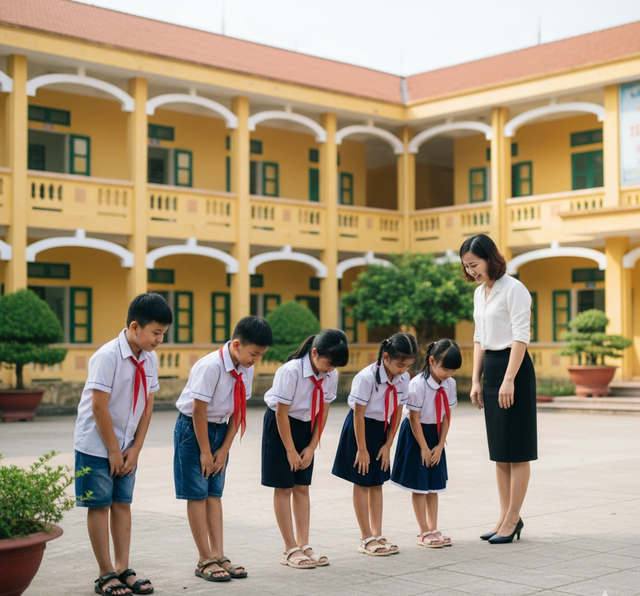
Educational environment requires mutual respect
Photo: TN created with AI
According to Mr. Hoang Ha, currently schools are focusing on training and raising awareness of children's psychology, from students to teachers and pedagogues. However, the subjects who should participate in classes and activities to understand the psychology of this age group are also the parents of students. Because if you do not understand the psychology of this age group, it will be difficult to understand, sympathize, and correct and educate your children properly.
From the school's perspective, according to Mr. Hoang Ha, mutual respect and respect for students are important things to do. If teachers still argue, colleagues address each other incorrectly, and students hear, will the dignity in education still exist? In addition, teachers need to be fair, exemplary, not biased, respect students, educate with love and humane discipline.
"Schools also need to develop clear procedures for handling situations such as school violence to protect both students and teachers. At the same time, focus on emotional education, life skills, teaching children about gratitude, empathy... This is considered a "vaccine" to prevent school violence, building dignity in education," said Mr. Hoang Ha.
From a social perspective, according to this expert, there needs to be a legal corridor to protect teachers.
Le Nguyen Thanh Duy, a 12th grade English 1 student at the Gifted High School (Ho Chi Minh City National University), said that in any era, the tradition of respecting teachers is always promoted. It is natural for students to be polite and respectful to their teachers.
Duy shared: "The key word here is respect. In the family, if parents do not respect each other, do not respect their children, teachers, education; parents always use rude words to talk about educators, it is very likely that it will affect their children's perspective. At the same time, in today's educational environment, if teachers only impart knowledge, provide information but ignore the factor of listening to students, ignore respect for their voices, ignore allowing students to debate with their thinking, and communicate with teachers from a discovery perspective, then that is not what students want."
Duy said: "A teacher who truly inspires students is not only a guide who guides students to learn on their own, but also a person who understands students, nurtures in them a love of learning, exploration, understanding, encourages them to think critically, and live with aspirations..."
Source: https://thanhnien.vn/giu-su-ton-nghiem-trong-giao-duc-nen-tang-tu-3-tru-cot-185250924174323661.htm




![[Photo] Highways passing through Dong Nai](https://vphoto.vietnam.vn/thumb/1200x675/vietnam/resource/IMAGE/2025/11/12/1762940149627_ndo_br_1-resize-5756-jpg.webp)





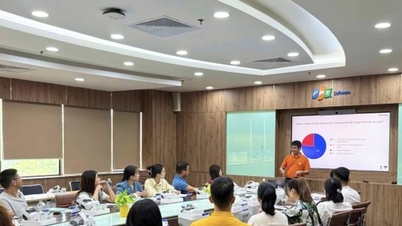
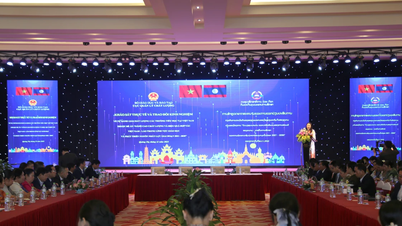




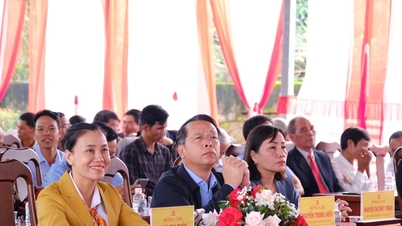







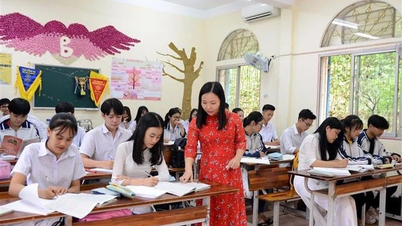


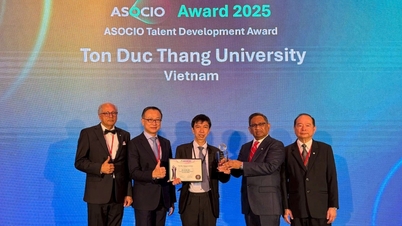




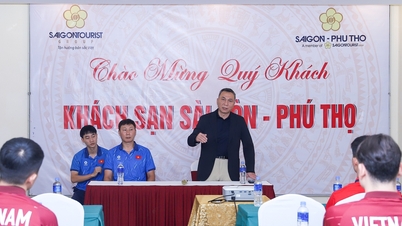



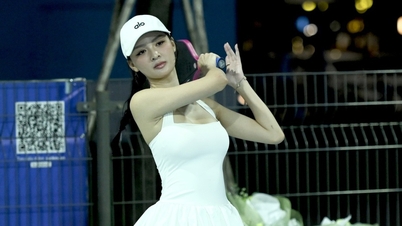








































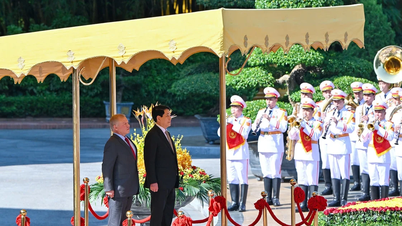







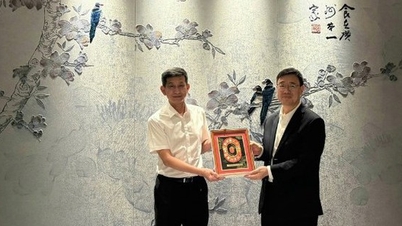





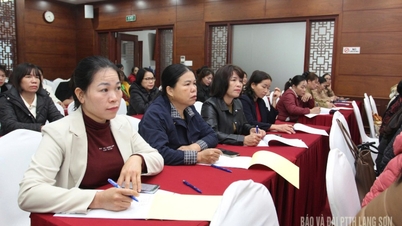

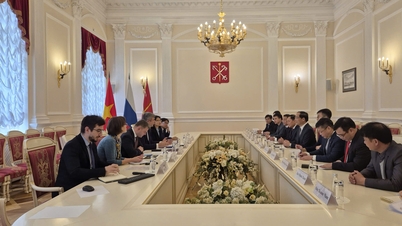
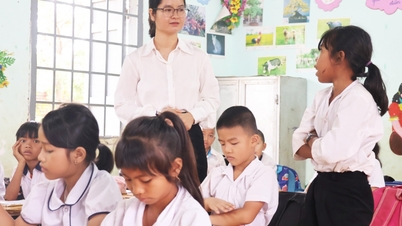







![Dong Nai OCOP transition: [Article 3] Linking tourism with OCOP product consumption](https://vphoto.vietnam.vn/thumb/402x226/vietnam/resource/IMAGE/2025/11/10/1762739199309_1324-2740-7_n-162543_981.jpeg)








Comment (0)